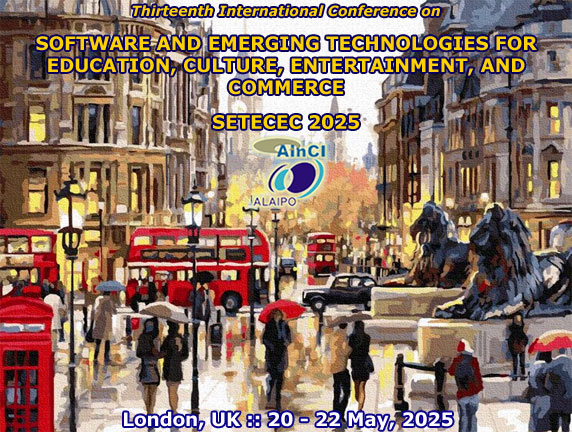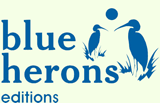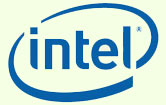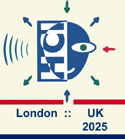Thirteenth International Conference on
Software and Emerging Technologies for Education, Culture, Entertainment, and Commerce ( SETECEC 2025 ):
New Directions in Multimedia Mobile Computing, Social Networks, Human-Computer Interaction and Communicability
:: London – UK ::
May 20 – 22, 2025
| Home |
| Topics |
| Important Dates |
| Paper Submission |
| Organization |
| Program |
| Registration |
| Publications |
::. FUN .::
Future University Hakodate
Japan
::. GIVE .::
Globally Integrated Village Environment Research
Austria
::. HAN .::
HAN University of Applied Sciences
the Netherlands
::. IIMROHTAK .::
Indian Institute of Management Rohtak
India
::. ITB .::
Institute of Technology Bandung
Indonesia
::. KETTERING .::
Kettering University
USA
::. MANCHESTER .::
University of Manchester
UK
::. METU .::
Middle East Technical University
Turkey
::. MJU .::
Myongji University
South Korea
::. MSU .::
Moscow State University
Russia
::. NHU .::
Nanhua University
Taiwan
::. NNI .::
National Institute of Informatics
Japan
::. NNU .::
National United University
Taiwan
::. NYU .::
New York University
USA
::. OU .::
The Open University
UK
::. PRC .::
Perspective Research Centre
UK
::. PURDUE .::
Purdue University
USA
::. TSINGHUA .::
Tsinghua University
China
::. TUDELFT .::
Delft University of Technology
the Netherlands
::. UBA .::
University of Buenos Aires
Argentina
::. UCC .::
University College Cork
Ireland
::. UCM .::
Complutense University
Spain
::. UCR .::
University of Costa Rica
Costa Rica
::. UFPE .::
Federal University of Pernambuco
Brazil
::. UHK .::
University of Hong Kong
China
::. UIOWA .::
University of Iowa
USA
::. UM .::
University of Malta
Malta
::. UMD .::
University of Michigan-Dearborn
USA
::. UNAM .::
National Autonomous University of Mexico
Mexico
::. UNC .::
National University of Córdoba
Argentina
::. UNIBO .::
University of Bologna
Italy
::. UNIGE .::
University of Genoa
Italy
::. UNILJ .::
University of Ljubljana
Slovenia
::. UNJU .::
National University of Jujuy
Argentina
::. UNIMOL .::
University of Molise
Italy
::. UNIVE .::
Ca' Foscari University of Venice
Italy
::. UofO .::
University of Ottawa
Canada
::. UOI .::
University of Ioannina
Greece
::. UPR .::
University of Puerto Rico
Puerto Rico
::. US .::
University of Sevilla
Spain
::. USC .::
University of Southern California
USA
::. UNTREF .::
National University of 3 de Febrero
Argentina
::. UWI .::
University of the West Indies
Jamaica
::. VUA .::
Vrije Universiteit Amsterdam
the Netherlands
::. WSU .::
Wayne State University
USA
::. YZU .::
Yuan Ze University
Taiwan
HOME |
|
Topics, Deadlines and Program Committee 1. Topics The 13th International Conference on “Software and Emerging Technologies for Education, Culture, Entertainment, and Commerce (SETECEC 2025): New Directions in Multimedia Mobile Computing, Social Networks, Human-Computer Interaction and Communicability” is a scientific meeting for discussing the latest advances in the emerging areas of computer sciences and new technologies for education, cultural and natural heritage, virtual entertainment and digital commerce, for example. All contributions –papers, posters, workshops, demos, doctoral consortium, research-in-progress, and so on, should be of high quality, originality, and significance. In the current international conference it is demonstrated how with a correct integration among professionals of formal, factual and natural sciences interesting research lines in the following subjects: Artificial Agents in Extended Reality, Computer Art and Creativity, Cyber-culture, Distance Learning, Educational Methodologies, Extended Reality, Gamification, Graphical User Interfaces, HCI, ICT, Intelligence Artificial, Interactive Design, Mobile Computing, Multimedia, Network Security, Machine Learning, Motion Graphics, Quality Evaluation of High Education, Social and Human Factors, Ubiquitous Computing, Users and Adaptive Interfaces, UX, Videogame Technologies, Visual Effects and Computer Graphics; and other computational areas are solicited on, but not limited to (alphabetical order):
Hence topics from the whole range of education, cultural / natural heritage and new technologies, human-computer interaction, extended reality, software, design, interactive systems, and so on, are welcomed. Last year’s symposia, workshops, conferences, etc., organized by ALAIPO and AInCI, for instance, included research works on the topics (see above the alphabetical order). An extensive listing connotes and reflects the requirement and also skill necessary to find intersection zones of the disciplines among the different domains, fields, and specialities; which at the same time potentially boosts and merges the formerly different scientific views. Furthermore, many conferences are focussed on specific aspects of computer science; artificial general intelligence; human-computer interaction; advanced interfaces; engineering education; information systems engineering; retrieval information; recommender systems; web engineering; gamification; tangible, embedded and embodied interaction; technological ecosystems, and so forth, and bring together leading experts in a particular field or sometimes on a specific technology. At such large conferences students are often marginalized or relegated to poster / demo or similar sessions, with only 5 – 10 minutes for the presentation/s. This conference is not a "mega scale" (thousands) and aim to promote dialogue between established professors and graduate students working on new directions. Furthermore, we work with zero "G" Factor (G = Garduña / Gardunia). Finally, all submitted contributions will be reviewed by a double-blind (at least three reviewers), non-blind, and participative peer review. These three kinds of review will support the selection process of those that will be accepted for their presentation at the international conference. Authors of accepted research works who registered in the conference can have access to the evaluations and possible feedback provided by the reviewers who recommended the acceptance of their works, so they can accordingly improve the final version of their contributions. This is an international conference “100% in-person.” Best regards, Francisco V. Cipolla Ficarra (Chair - coordinator), Graciete Amaro and James Brewer (Local Secretariat). ALAIPO: Asociación Latina Interacción Persona-Ordenador –Latin Association of HCI (www.alaipo.com) and AINCI: Asociación Internacional de la Comunicación Interactiva –International Association of Interactive Communication (www.ainci.com). Address: Via Tabajani 1, S. 15 (7) - 24121 (Bergamo) Italy :: c/ Angel Baixeras, 5 - AP 1638 - 08080 (Barcelona), Spain. Email: info@alaipo.com :: info@ainci.com P.S. If you wish to be removed from this mailing list, please send an email to info@ainci.com or info@alaipo.com with "unsubscribe" in the subject line. Thanks.
2. The conference have the following deadlines :: Works Submissions: Closed. Consequently, as they are received, they will be evaluated. It is a way to speed up the process to make up the final program of the international conference, visa requirements, should plan travel well in advance, and so on. In other words, it is not necessary to wait until the deadline to send them for the evaluation process. :: Deadline Works Submissions: April, 12th – local time in Hawaiian Islands :: Closed.
3. Program and Organizing Committees: :: Francisco V. Cipolla Ficarra (chair - coordinator) Demo Session, Poster Session, Workshop Session, Parallel Session and Doctoral Consortium: :: Alan Radley, Perspective Research Centre (UK), Anna Parodi. University of Genoa (Italy), and Miguel C. Ficarra. AInCI, ALAIPO and FMF (Spain and Italy). Honorary Committee: :: Jaap van Till. Delft University and HAN Polytechnic (the Netherlands) Scientific, Steering and Technical Committees :: Alan Radley. Perspective Research Centre (UK) |
|
| © 1997 - 2025 AINCI & HCI Lab | ||||
|---|---|---|---|---|































